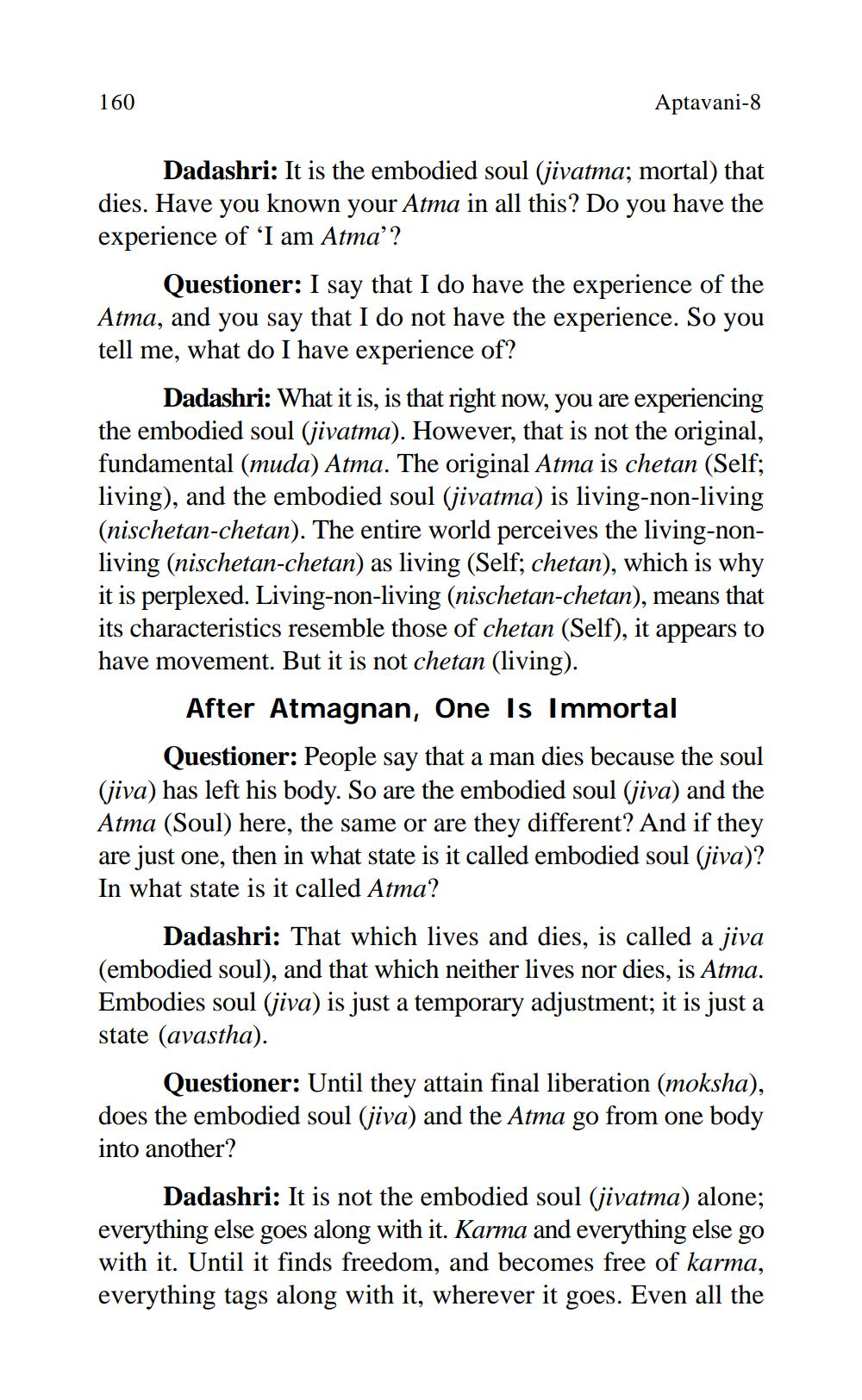________________
160
Aptavani-8
Dadashri: It is the embodied soul (jivatma; mortal) that dies. Have you known your Atma in all this? Do you have the experience of 'I am Atma'?
Questioner: I say that I do have the experience of the Atma, and you say that I do not have the experience. So you tell me, what do I have experience of?
Dadashri: What it is, is that right now, you are experiencing the embodied soul (jivatma). However, that is not the original, fundamental (muda) Atma. The original Atma is chetan (Self; living), and the embodied soul (jivatma) is living-non-living (nischetan-chetan). The entire world perceives the living-nonliving (nischetan-chetan) as living (Self; chetan), which is why it is perplexed. Living-non-living (nischetan-chetan), means that its characteristics resemble those of chetan (Self), it appears to have movement. But it is not chetan (living).
After Atmagnan, One Is Immortal
Questioner: People say that a man dies because the soul (jiva) has left his body. So are the embodied soul (jiva) and the Atma (Soul) here, the same or are they different? And if they are just one, then in what state is it called embodied soul (jiva)? In what state is it called Atma?
Dadashri: That which lives and dies, is called a jiva (embodied soul), and that which neither lives nor dies, is Atma. Embodies soul (jiva) is just a temporary adjustment; it is just a state (avastha).
Questioner: Until they attain final liberation (moksha), does the embodied soul (jiva) and the Atma go from one body into another?
Dadashri: It is not the embodied soul (jivatma) alone; everything else goes along with it. Karma and everything else go with it. Until it finds freedom, and becomes free of karma, everything tags along with it, wherever it goes. Even all the




